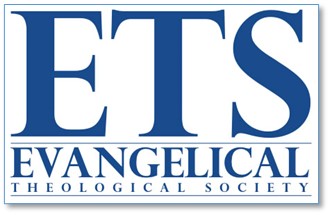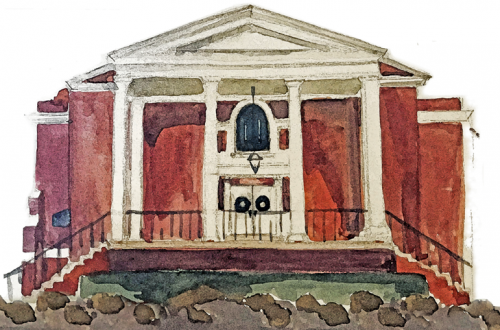 I have been reading Francis Beckwith’s fascinating book about his return to the Roman Catholic Church from Protestant Evangelicalism. On page 83, there is an ironic little anecdote in which Beckwith says that Carl Trueman was a “catalyst” for his conversion to Roman Catholicism. I won’t explain the whole thing here, but in short Trueman had written an essay in which he claimed that Roman Catholicism was the “default” position for the church in the West. Trueman wrote that,
I have been reading Francis Beckwith’s fascinating book about his return to the Roman Catholic Church from Protestant Evangelicalism. On page 83, there is an ironic little anecdote in which Beckwith says that Carl Trueman was a “catalyst” for his conversion to Roman Catholicism. I won’t explain the whole thing here, but in short Trueman had written an essay in which he claimed that Roman Catholicism was the “default” position for the church in the West. Trueman wrote that,
“Rome has a better claim to historical continuity and institutional unity than any Protestant denomination, let alone the strange hybrid that is evangelicalism; in light of these facts, therefore, we need good, solid reasons for not being Catholic” (Carl Trueman quoted by Beckwith).
Beckwith saw in Trueman’s words an insurmountable obstacle, one that would finally lead him to Roman Catholicism. Beckwith writes,
“Professor Trueman’s reasoning would serve as a catalyst for reorienting my sense of whether the Catholic Church or I had the burden in justifying the schism in which I had remained for over thirty years” (p. 83).
Of course, Trueman’s essay was not at all an attempt to draw people into the Catholic church. On the contrary, Trueman’s point was quite the opposite. That is why his place in Beckwith’s story is so ironic.





22 Comments
Russ Ware
If whacked out theology and ‘damage’ were automatic disqualifiers for ecclesial legitimacy, no denomination or ‘slice’ of the Christian Church would stand. “Whacked out theology” is in the particular construct of the eye of the beholder in the context of the ‘right of personal interpretation.’
Some ‘whacked out theologies’ have more historical legitimacy and biblical backing than others. 😉
Dr. Beckwith’s book just arrived from Amazon today… I can’t wait to read it.
Don Johnson
As I see it, this type of discussion is based on 2 things: 1) the history of the church and 2) the interpretation of Scripture.
If one believes the Catholic version of the history of the church and believe in the Catholic interpretation of Scripture, including their Magisterium, then you are Catholic; else not.
Alternatives include the EOC and their version of their history and their version of the Magisterium.
If you do not believe in a Magisterium, then you cannot be either of these and I do not believe in a Magisterium, an infallible teaching authority.
The reasons I do not believe in a Magisterium is due to my studies of the original intent of some Scripture and I see where the supposed Magisterium before the Great Schism got it wrong in SOME places.
Denny Burk
Hey, all. Please remember my one rule for commenting is that you use your first and last name. Thanks.
Darius Teichroew
Hey Denny, are we to assume that the amendment did not pass?
GLW Johnson
I am stunned that Beckwith would read Trueman in that light-but his comments since becoming RC reveal that he has a very poor grasp of classical Reformed thought. As a matter of fact, as has been pointed out by others, Beckwith knowledge of contemporary RC NT scholarship( e.g. J.A. Fitzmyer commentary on Romans) is equally bad.
Denny Burk
Beckwith understood Trueman. The irony was not due to misunderstanding.
Russ Ware
Don,
What makes these issues such a struggle for many of is that you see where the Magisterium got it wrong. Maybe you came up with that on your own, or more likely you were informed in that decision from a particular theological/ecclesiological system. Either way, subjectivity is an issue. Maybe you’re right, maybe your wrong.
Sola scriptura does not solve this issue. In fact, I would argue that anyone’s version of recent Church history should show us that sola scriptura fails miserably in this regard. I don’t like that. I wish it weren’t so. It makes me uncomfortable, but nevertheless…
Of course, that doesn’t automatically mean that the Catholic’s church’s version, or the Magisterium is right. But it does mean that there isn’t any logical reason to objectively say that their version should be any more suspect than yours or mine.
At the heart of our ‘strange hybrid’ are confessional movements that split out of the Church as it was. Thus, the only way to legitimize our ongoing separation is in being able to say that we have differences significant enough to justify ongoing schism.
We should be asking that question without ceasing!
Again, I recommend the book from Wheaton’s 2007 Theological Conference: Ancient Faith for the Church’s Future
by Mark Husbands (Editor), Jeffrey P. Greenman (Editor)
jeff miller
I like the Carl Truman quote and I think it is accurate. If the solid, biblical reasons for not being Catholic where at the same time solid, biblical reasons for not being reformed-catholic how many of us would embrace them?
Denny,
(if you have time)
In light of reading Beckwith’s book, do the thoughts in “Authority of the Church” at the top of my blog make any sense to you?
Glad you made it home safe.
Jeff
Francis Beckwith
“I am stunned that Beckwith would read Trueman in that light-but his comments since becoming RC reveal that he has a very poor grasp of classical Reformed thought. As a matter of fact, as has been pointed out by others, Beckwith knowledge of contemporary RC NT scholarship( e.g. J.A. Fitzmyer commentary on Romans) is equally bad.”
I guess I should not surprised at these sorts of comments. I am all too familiar with enthusiastic Christians, both Protestants and Catholics, who read not to learn, but rather to find talking points to provide ammo for their heresy hunting. (They are, to use an analogy, not unlike rabid Star Trek fans who occupy their parents’ basements and endlessly discuss the meaning of Kirk’s comments in episode 4 season 2 and how they are similar to Picard’s diatribe against the Klingon admiral in the Next Generation’s fourth season).
After all, one can agree with Fitzmyer’s understanding of dikaioo without embracing the Reformed (or even Lutheran) view of justification. A declaration of innocence does not answer the deeper theological (and I would say, philosophical) question of the ontological standing of grace, whether it is infused or merely imputed. That’s where the action is. Fitzmyer is one of thousands of Catholic biblical scholars. Perhaps if I were a Protestant seeking to find a loophole not to cross the Tiber, I would cling to Fitzmyer like a Reformed raft heading in the other direction. But if I were a Catholic seeking to find a loophole not to move to Geneva, I can stand on the authority of Wright, Dunn, and Rainbow. Serious men and women do not conduct their intellectual pilgrimages in such a superficial fashion. I would like to think mine has not been conducted in that way (though I will only know for sure when I stand before my Maker).
In Return to Rome I think I gave a fair and accurate presentation of the Reformed view of justification. I will leave it to scholars well-versed in the field to offer their own assessment (if I am fortunate enough to have anyone of them read it). Remember, however, that my book is not intended to be a treatise in systematic theology. It is a narrative that celebrates both the Protestant and Catholic influences on my life, showing, as best I can, how I wrestled with and thought through my return to the Catholic Church.
Don Johnson
Russ,
Yes, I am subjective, it cannot be helped. I can be wrong and I have changed my beliefs about some things after study, so I might STILL be wrong about some things and yet change again after more study or if God intervenes directly.
I agree that sola scriptura does not seem to work except in the sense of an incredible number of denominations forming. What seems clear to one and mean X can seem to mean Y to another, for example, the egal/comp differences. But there are diffs over baptism, which is supposed to be one of the basics of the faith according to Hebrews, etc.
Denny Burk
Dr. Beckwith is right. I think his explanation of the reformed view of justification is in fact a fair presentation. Readers should not think that Dr. Beckwith has misunderstood reformed theology. He understands it. He just doesn’t agree with certain aspects of it.
I hope this post might stimulate readers to look at Beckwith’s book for themselves. It’s the only way to really understand where he’s coming from.
GLW Johnson
For those who do not have green blood and pointed ears, a close reading of that basement dwelling trekkie -John Calvin- and his take on the Canons and decrees of the Council of Trent will disspell the misguided notion that Beckwith’s embrace of RC and Rome’s denunciation of the Reformation’s understanding of ‘sola fide’would have met with favor in Reformed circles that still think highly of that Spockian like Reformer.
Russ Ware
Don…
And so it would appear that we agree on the problem and the situation growing our of the idea of sola scriptura. But what of a solution?
GLW…
What the heck!? I need a red blooded translation of that comment.
Adam Stahr
Scott and Kimberly Hahn wrote a book that sounds very similar to Beckwith’s: “Rome Sweet Home.”
Scott (a protestant pastor) and his wife outline their long and difficult journey which led them to the Catholic Church.
An interesting read…
Don Johnson
Russ,
One solution would be for Jesus to return and let me sit at his feet so he tells me where I got it wrong.
Failing that, I think each person needs to act in faith based on their current understanding and be teachable. Study both sides (or more) where there are differences among believers. Be willing to admit one may be wrong. Love other believers and do not construct a high filter on what it takes to be a believer.
Russ Ware
Don,
Yep. In the Protestant context that is pretty much the best we can do. And it is indeed what we should do, even as we watch and remain open to the fact that Christ may have a better way for us even before he returns.
jeff miller
Hello Russ and Don,
I find your comments agreeable but one part leaves me with a question.
If I understand, you agree that something we are calling “sola scriptura” does not seem to “work”. What are your expectations? How do you determine when something does, or does not “work”?
Thanks
Jeff
Russ Ware
Jeff…
Not sure if Don and I are really agreeing or not. We do seem to agree on the track record of sola scriptura. I’m not we agree on the implications of such.
In the formal sense, I believe the scriptures are sufficient to tell us everything we need to know. But practically speaking, there is the matter of interpretation and what the bible is in the first place (both in terms of which books and the nature of). There is no inspired table of contents.
R.C. Sproul said that we have a fallible list of infallible books (his commitment to sola scriptura requires him to say this and I appreciate the honesty).
Does that ‘work?’
The sola scriptura purist is stuck. For the concept of biblical infallibility to have any meaning, one most hold to an infallible list of books. But to do that violates sola scriptura because it requires an extra-biblical definition.
jeff miller
Hello Russ,
I appreciate the tension you are highlighting. I notice that Jesus did not address what ever discussions or debates that there may have been in regard to marginal writings yet he made a clear distinction between the word of God and tradition handed down. He often made explicit references to the Law and to the Prophets and he presented the gospel, that is His teaching concerning the kingdom of God as a superseding authority. I Think this is why the gospel (as we have in Matthew, Mark, Luke, and John) is referred to as “the Word of God” in Acts in a dynamic sense for those subjects of the New Covenant. I made some observations on this in “Progress in Acts and in You”.
Russ it seems to me that God’s Word is authoritative and He communicates that word to us through the “prophetic scriptures” with or without man’s recognition of scriptural authority. Would you agree that the Lord’s concern is centered on our recognition that the flow of authority is from Him to us as we embrace, and if we embrace, his cause as witnessed to us in the Gospel?…God’s authority at no point is dependent on man’s reception or verification or even his enumeration of what is counted as prophetic.
With joy and mutual hope in Israel’s Messiah,
Jeff
Russ Ware
Jeff…
I appreciate your comments. Thank you.
A few thoughts.
I’m not sure that we see Jesus, or the New Testament in general, drawing a fundamental distinction between Word and Tradition per se. That implies that Word (of God) = text. Mark 7 seems to be a specific refutation of traditions which nullify the Word of God (written or otherwise). Jesus is arguing against abandoning the commands of God for human tradition. We can see the Reformation parallels for sure! And yet Luther’s reform seemed to be at least initially in the Mark 7 spirit of standing against the specific traditions that were nullifying the revealed Word of God as practically defined by the Church/community he sought to reform.
I completely agree that God’s truth is not fundamentally determined by our recognition of such. Amen. Our question concerns the normative, practical means God has ordained by which we should know the scope and nature of his revealed truth.
On an individualistic basis, are we to just know?
We could go the route of Spencer Burke and other emergents, suggesting a Jesus without the Church or the Book. But I find this nonsensical. And yet, is that idea not honest ‘radical Protestantism’ run its full course?
This is why I think modern Evangelicalism fails so miserably to answer the legitimate questions of emergents. The canon question, for instance, is not answered by modern evangelical Protestantism. Those who grew up in that system, if they ever come face to face with the problem, are compelled to reject the fundamental concept (many are), or find a better, more historical and workable answer to the question (some are).
When we are brought into ‘the family,’ are we attaching ourselves primarily to a community or a text? Roman Catholics, Orthodox and Emergents would all say, “Community!” But they would mean different things. Inasmuch as the emergent concept of such, particularly at the movement’s fringes, is without authority or doctrinal mooring, we may have modern Evangelicalism to thank for it.
Jeff Miller
Is faith in Jesus immediate?
Russ Ware
Jeff…
Can you rephrase or elaborate on your question? I’m not sure exactly what you are asking.
Thanks.